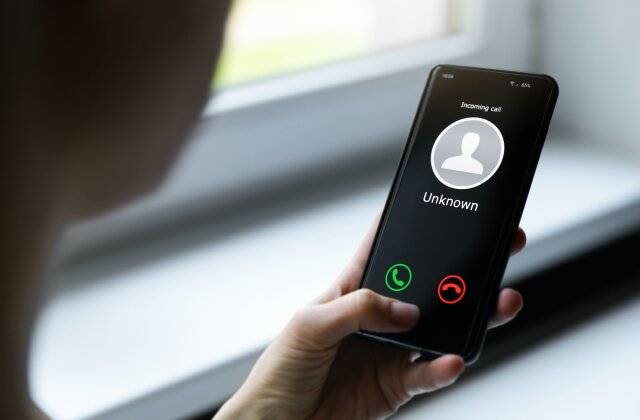 They can come across as so legitimate, those calls claiming to be from the Internal Revenue Service. So many people have a fear of the federal agency, or at least a healthy respect. Therefore, any purported correspondence from the IRS promptly gets one’s attention. Scammers know that. And that’s why so many scams entail IRS impersonators, tricksters who want you to, for example, send them cash for taxes, fees, or penalties that you do not owe.
They can come across as so legitimate, those calls claiming to be from the Internal Revenue Service. So many people have a fear of the federal agency, or at least a healthy respect. Therefore, any purported correspondence from the IRS promptly gets one’s attention. Scammers know that. And that’s why so many scams entail IRS impersonators, tricksters who want you to, for example, send them cash for taxes, fees, or penalties that you do not owe.
To help you avoid being taken, here’s what you should know about spotting tax debt phone scams, as well as those using other forms of communication.
The Most Current Scams
“Buy Some Gift Cards”
Here, the scammer phones you and pretends to be an IRS agent informing you that your identity has been swiped and was used to open phony bank accounts. You’re then instructed to purchase specific gift cards. Once you do that, the criminal will ask you for the cards’ access numbers.
“We Need Your Bank Information”
With this trick, the caller poses as a Federal Depository Insurance Corporation representative who wants your personal data that they can then use to sell your identity or otherwise commit fraud. Note that the FDIC will never send you unsolicited correspondence seeking your personal info or asking for money.
“Your Social Security Number Will be Cancelled”
This scam involves a criminal contacting you and claiming that they can cancel or suspend your Social Security number, for whatever reason. Just hang up.
“I’m from the Bureau of Tax Enforcement”
First, there’s no such thing as a Bureau of Tax Enforcement. So, if you get a letter from this fake bureau claiming that if you don’t pay up, it’ll enforce a fake tax lien or levy, just tear it up.
“Click on This Link”
And once you do, you’ll be asked to give up personal info including your Social Security number, date of birth, etc., all under the guise of the IRS sending you a just-discovered “refund.” Delete this email immediately.
While the IRS does provide a program to those with back debt called Offer in Compromise as a form of debt relief, if you get a tax debt compromise program phone call, that is a scam.
“Return this Call or Be Arrested”
Did you know that unscrupulous types can make it seem as though, on your Caller ID, a call is coming from the IRS (or law enforcement, etc.?) It’s true, so don’t go by that. What you need to know is that the agency never, ever leaves prerecorded voice mails.
“We’re from the Taxpayer Advocate Service”
Yes, this is an actual IRS organization that assists taxpayers with problems. However, the service will never phone you out of the blue. If you return the call, the criminal will ask you for personal info so that they can, of course, send you a tax refund.
“We Need You to Fill Out Form W-8BEN”
Now, this form, a “Certificate of Foreign Status of Beneficial Owner for United States Tax Withholding,” is a legitimate Internal Revenue Service form. However, crooks have been altering the form so that they can garner personal data that they can use for untoward purposes.
“Click on this Link to See Your Tax Transcript”
These nefarious actors send you an email with an attachment that they allege is your tax transcript, which is a summary of your tax return. What you need to know is that while you can request one, the IRS never emails transcripts.
The bottom line is that if you’re not up to date on spotting tax debt phone scams, you could wind up in bad financial shape. Don’t get taken in; some of these scams do sound legit. If you’re ever in doubt, your best bet is to contact the IRS yourself.
HedgeThink.com is the fund industry’s leading news, research and analysis source for individual and institutional accredited investors and professionals



































